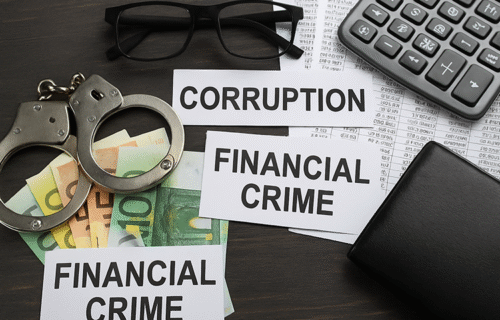Corruption remains one of the most persistent forms of organized crime in the Czech Republic, with investigations continuing to focus on the misuse of public funds, manipulation of contracts, and financial misconduct within state institutions and the private sector. According to the latest findings from the National Headquarters Against Organized Crime (NCOZ), economic and corruption-related offences once again represented the majority of serious cases handled last year.
The NCOZ’s newly released annual report shows a continued rise in complex investigations, particularly those involving tax and customs fraud, international financial networks, and investment scams. In 2024, the unit opened dozens of new cases and referred more than fifty for prosecution. Over one hundred of its ongoing investigations were classified as economic or corruption-related, reflecting a steady trend from previous years.
Officials noted that corruption remains especially entrenched in sectors linked to large public budgets—such as construction, healthcare, and information technology—where public tenders and procurement processes are often vulnerable to manipulation. In some regional administrations, NCOZ investigators say they repeatedly uncover similar offences every few years, suggesting that preventive measures have not been fully effective.
The report also highlights the growing sophistication of criminal activity. Organized networks now frequently combine corruption with financial or cyber elements, using complex ownership structures, shell companies, and digital channels to obscure money flows. Investigators say that international cooperation has become increasingly necessary, as many schemes cross borders through intermediaries and offshore accounts.
Although the Czech Republic does not stand out in Europe for the overall level of corruption, the persistence of such offences underscores structural weaknesses in oversight and public accountability. Data from Transparency International’s most recent corruption perception index place the country mid-table within the European Union, with only modest progress in recent years.
Meanwhile, NCOZ investigators secured billions of crowns in seized assets last year, a record figure for the unit. Yet experts caution that the volume of recovered funds still covers less than half of the total losses caused by economic crime. Officials admit that while enforcement capacity has improved, systemic prevention and transparency reforms remain essential to reduce opportunities for graft.
Real estate transactions and property ownership were not listed as a separate crime category in the 2024 report, though officials note that property assets frequently appear in corruption and money-laundering cases. In particular, real estate is often used to conceal or reinvest illicit profits rather than as the direct focus of fraud itself.
Overall, the NCOZ’s work reflects a growing emphasis on tracing financial flows and uncovering the networks that link corrupt public contracts to private enrichment. As one senior officer summarized, the forms of crime may evolve, but the underlying motives — profit, influence, and access to public resources — remain much the same.
